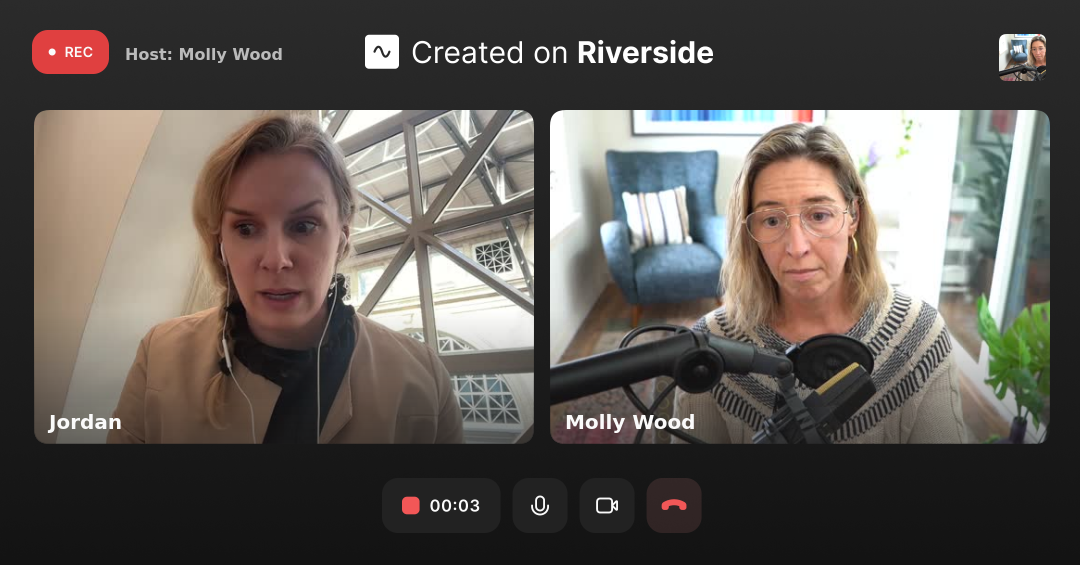Episode 40: Jordan Schenk of Flashfood
Wasted food is a climate disaster and a moral one, too. This startup connects grocery surplus with buyers, offering groceries (and food security) at a huge discount.
In the latest episode of Everybody in the Pool, a conversation about the pressing issue of wasted food1 and its intertwined relationship with climate change, food insecurity, and economics.
In unusual fashion for me, I’m going to hit you hard with the scope and scale of this problem because it’s honestly appalling.
First: The US wastes more food than any other country—almost 40% of our food supply, and the equivalent of 130 billion meals every year. Yes, this is also where I tell you that 35 million Americans, including 10 million children, are food insecure—not sure when and where they will get their next meal.
Also, the climate impact of wasted food is the equivalent of about 37 million cars on the road, or fully 11% of greenhouse gas emissions. Let that sink in. Without inventing a thing, without making a single sacrifice in our already privileged lives, without doing anything except not throwing away food, we can accomplish the equivalent of taking 37 million gas-powered cars off the road.
See, when food ends up in landfills (by the way, food is 22% of municipal landfill waste), it doesn’t rot and feed critters in some kind of cool biological process like compost. The way food biodegrades releases methane (as well as carbon dioxide and other chemicals), which is greenhouse gas that’s way more potent than carbon dioxide—it contributes to much more immediate warming, even though it doesn’t last as long in the atmosphere.
And again, we have plenty of food. The world overproduces food by approximately 1,500 calories per person per day, yet food insecurity and inability to afford nutritious food remain rampant problems. It’s a paradox of plenty, and it’s the result of flaws in many systems—behavioral, economic, social, and on and on.

Ok. Solution time. In this week’s episode, I talked with Jordan Schenk, chief customer officer at Flashfood, a mobile platform that partners with grocery stores to sell food nearing its best-before date at significantly reduced prices. Consumers sign up for the app, find out of there are heavily discounted groceries at a store near them, and pick them up as part of their normal shopping process. Flashfood accepts SNAP benefits, and among its goals, in addition to keeping grocery stores from throwing away perfectly good food, is to tackle food insecurity in communities. Fresh produce is often a challenge for both grocery stores and families having to stretch benefits or spending, so a $5 box of fruits and vegetables can make a big difference for families with limited budgets.
By focusing on the grocery store, Flashfood uses existing retail infrastructures to streamline the process, making it easier for stores to participate and for consumers to access discounted food.
It’s a wonderful conversation about a sobering problem, and, as it happens, Flashfood just launched in northern California and one of my neighborhood grocery stores is on it! Win-win!
Please listen and enjoy and I beg you, at minimum, get a compost bin instead of chucking food in the trash? This is an easy one, folks.
In other food news
I’m honestly still reeling from this headline:

This bill—and there’s a similar one that’s already passed in Alabama, and one on the docket in Tennessee—refers to cell-cultivated meat, not meat replacements like Impossible Foods or Beyond Meat. This is what I’ve long called “petri meat,” where meat that’s almost identical to beef or chicken on a cellular level is grown in labs instead of grown, fed, watered, and slaughtered as animals.
It’s the kind of meat that, per Fast Company, China considers integral to food security in the face of viral outbreaks, extreme weather, crop failures, and other natural disasters that impact animal agriculture. California, Israel, and the Netherlands have also thrown money and R&D at cell-based meat replacement tech. It’s the kind of technology that could help the world meet the UN’s call to reduce the production and consumption of meat, specifically beef, to make a huge dent in greenhouse gas emissions.
And of course, it’s the kind of technology that could massively disrupt one of the biggest industries on the planet. The only reason to “criminalize” the development of cell-cultivated meat before the industry even gets off the ground is to slaughter the baby cow before it can grow up and disrupt the bulls.
I recently met a woman from a food-related nonprofit who urged me to use the term “wasted food” instead of “food waste.” She pointed out that if the noun is “waste,” it lets us forget that it’s actually food, and it lets us avoid the blame for wasting in the first place. The noun in question, she said, is “food.” The “wasted” part came from us. I believe language matters, and I love this edit, and I’m going to use it from now on!



